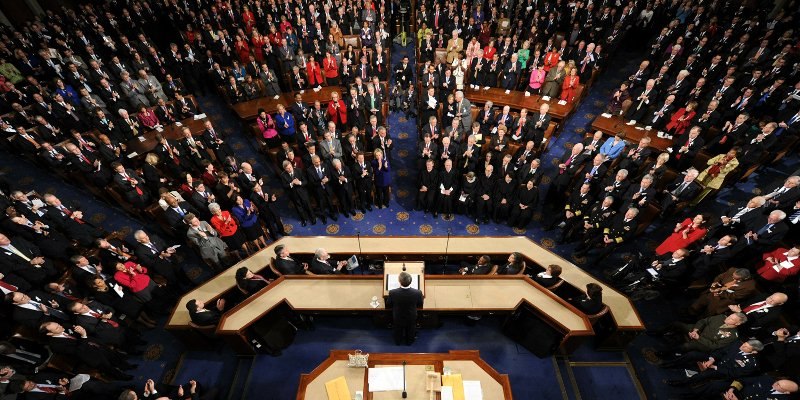On the whole Americans tend to view themselves as centrist, but Americans are slightly less conservative than their parents
Ask Americans to rate themselves ideologically and the country comes down smack in the middle of that spectrum. If zero is the most liberal position, and 100 the most conservative, the average American’s score in the latest Economist/YouGov Poll is almost exactly at the midpoint: 51.
The country overall is most definitely moderate, with fewer than one in ten putting themselves at either extreme – below 10 on the liberal side or above 90 on the conservative one. But this average rating masks big differences between the parties on the liberal-conservative spectrum – differences of nearly 40 points. The average Republican places himself or herself at 70, the typical Democrat at 34 (independents are like the country overall, with a mean rating of 51).
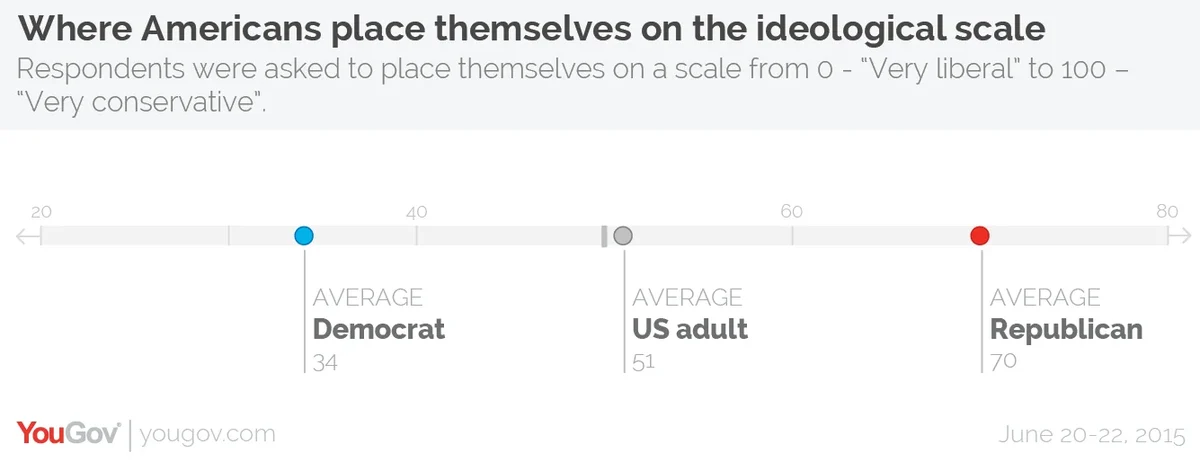
Nearly everyone in the poll was able to place themselves on the scale. Just 2% could not.
And if you ask these poll respondents, the country is both getting slightly more liberal and definitely more polarized. Comparing themselves to their parents, Americans say they are less conservative than their parents (with their fathers, on average, seen as more conservative than their mothers). But partisans have moved in different ways. Republicans remember their parents as less conservative than they themselves are today, while Democrats remember the opposite: they say they are personally more liberal than their parents.
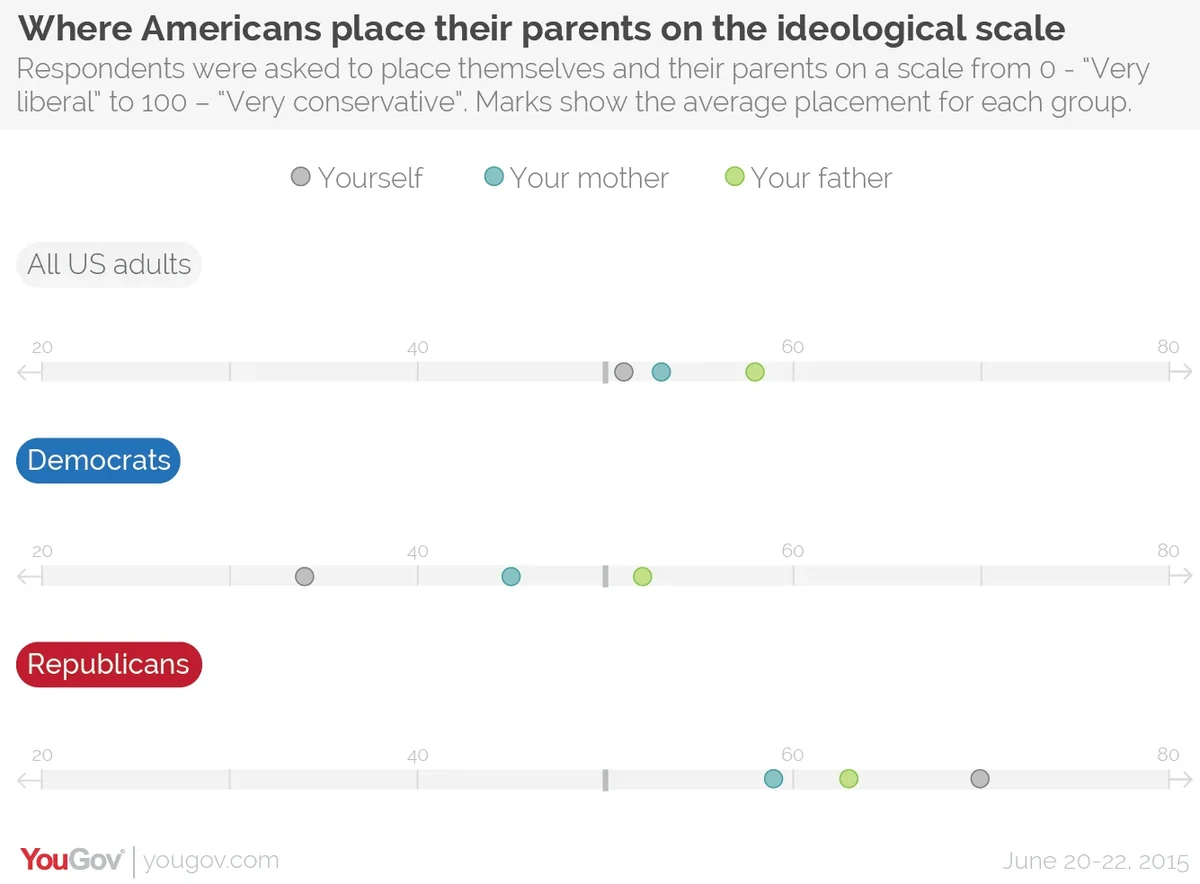
Americans are less able to place their fathers on the scales than they are to place their mothers. But there appears to be little difference in the current self-ratings of those who were able to evaluate their parents and those who were not.
Besides political party, there are some other demographic differences. Senior citizens are the most conservative, giving themselves an average rating of 62. All other age groups are close to the midpoint of the scale. Self-described liberals and conservatives put themselves in between the midpoint and the extreme, with an average self-rating of 21 for liberals and 76 for conservatives.
The ideology of many Republican presidential candidates is well-known, at least to Republicans. 80% or more of Republicans can rate former Florida Governor Jeb Bush, New Jersey Governor Chris Christie, Kentucky Senator Rand Paul, Florida Senator Marco Rubio and businessman Donald Trump. Half or more can rate the others.
Republicans’ ideological placement of their party’s presidential candidates comes relatively close to where they place themselves, with Texas Senator Ted Cruz, former Arkansas Governor Mike Huckabee, Texas Governor Rick Perry, former Pennsylvania Senator Rick Santorum, and Wisconsin Governor Scott Walker among the closest. Some, including Bush, Christie, and South Carolina Senator Lindsay Graham, are seen as less conservative than the average Republican.
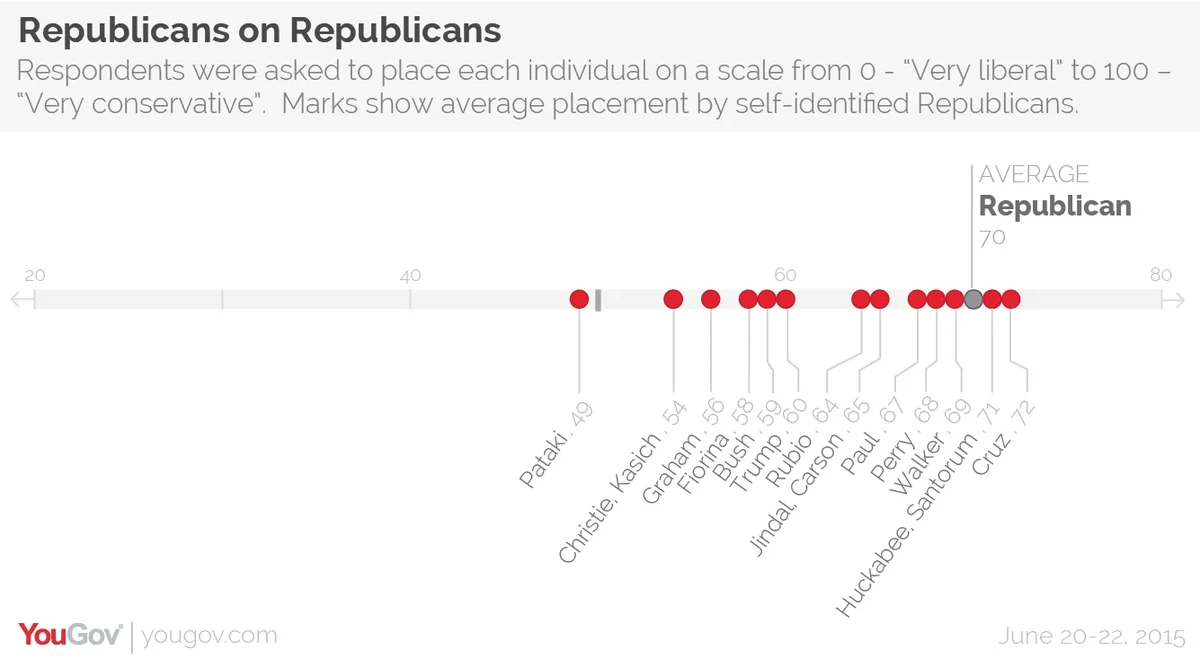
The general public and Republicans think similarly about the GOP contenders. On the other hand, Democrats rate their party’s candidates somewhat less to the left. In fact, the average placement for Democratic candidates by Democrats is less liberal than the Democrats’ views of themselves. That is true when Democrats look at President Obama, Vice President Joe Biden, former Secretary of State Hillary Clinton and even Vermont Senator Bernie Sanders, whom Democrats see as their most liberal alternative.
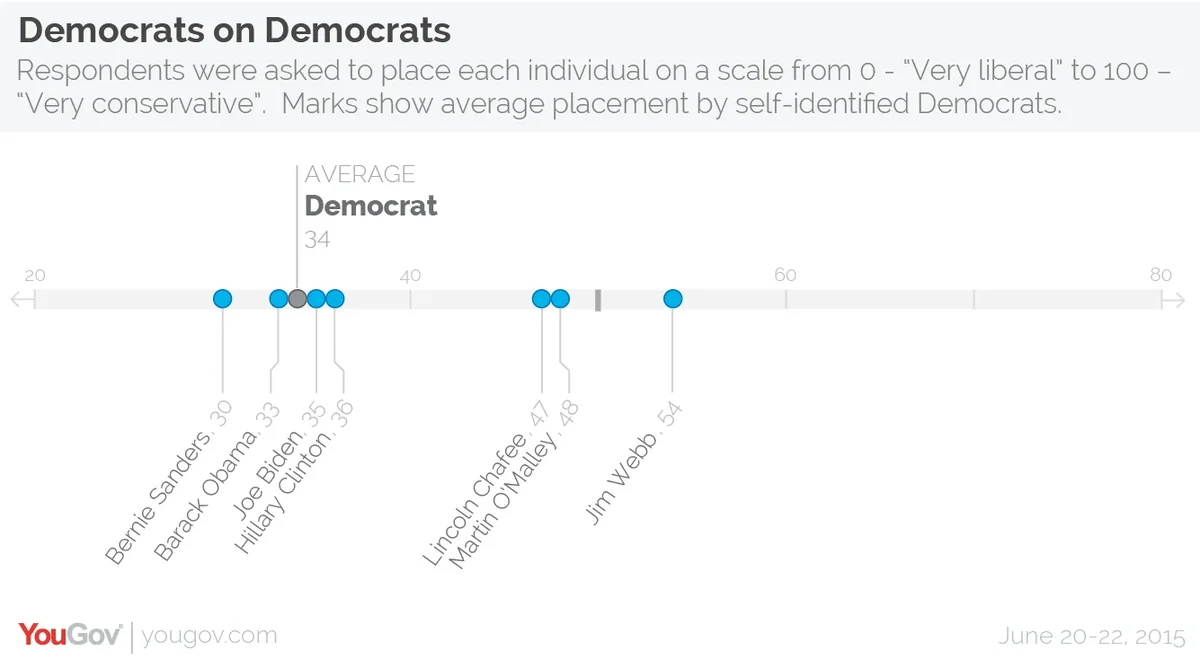
Economist/YouGov poll archives can be found here.
